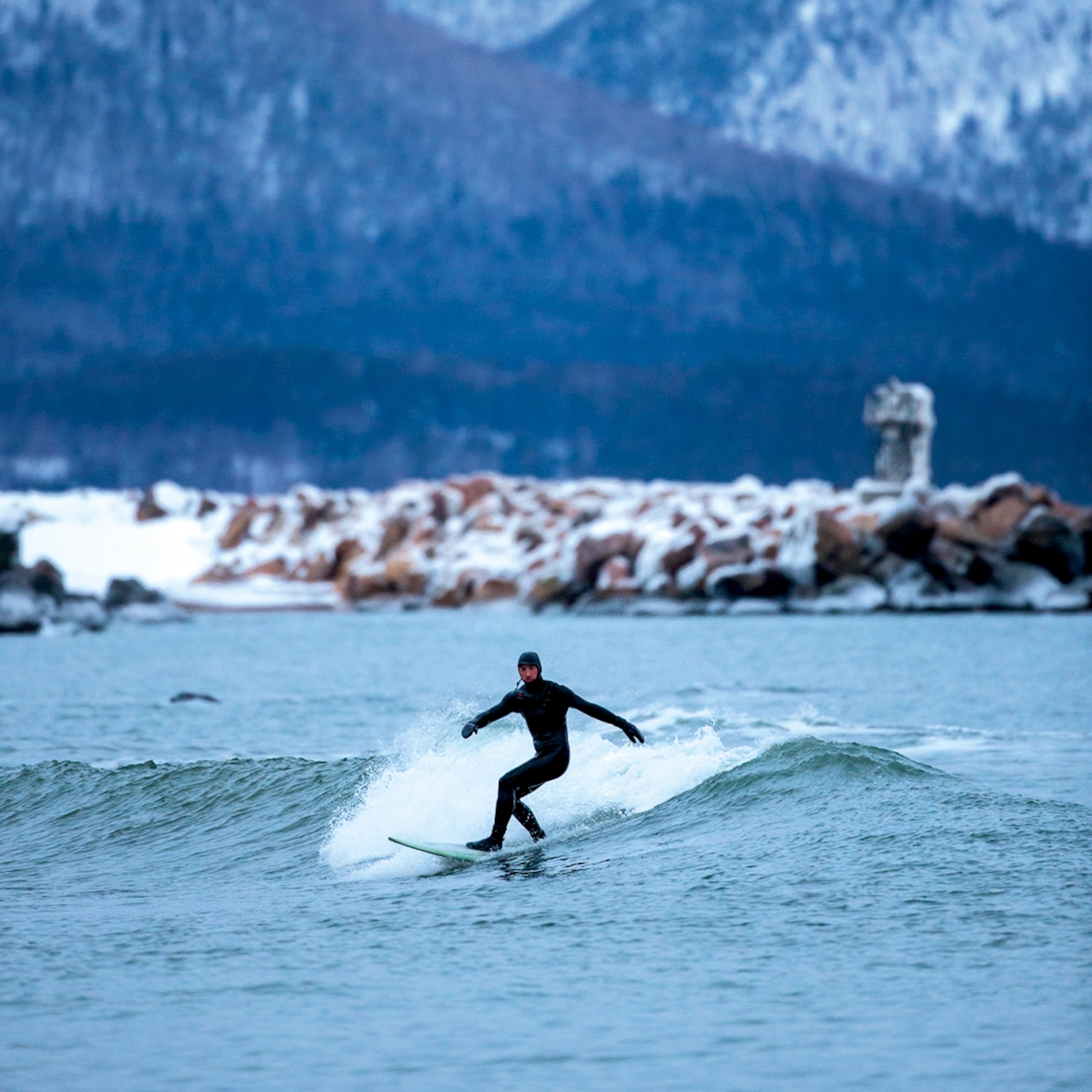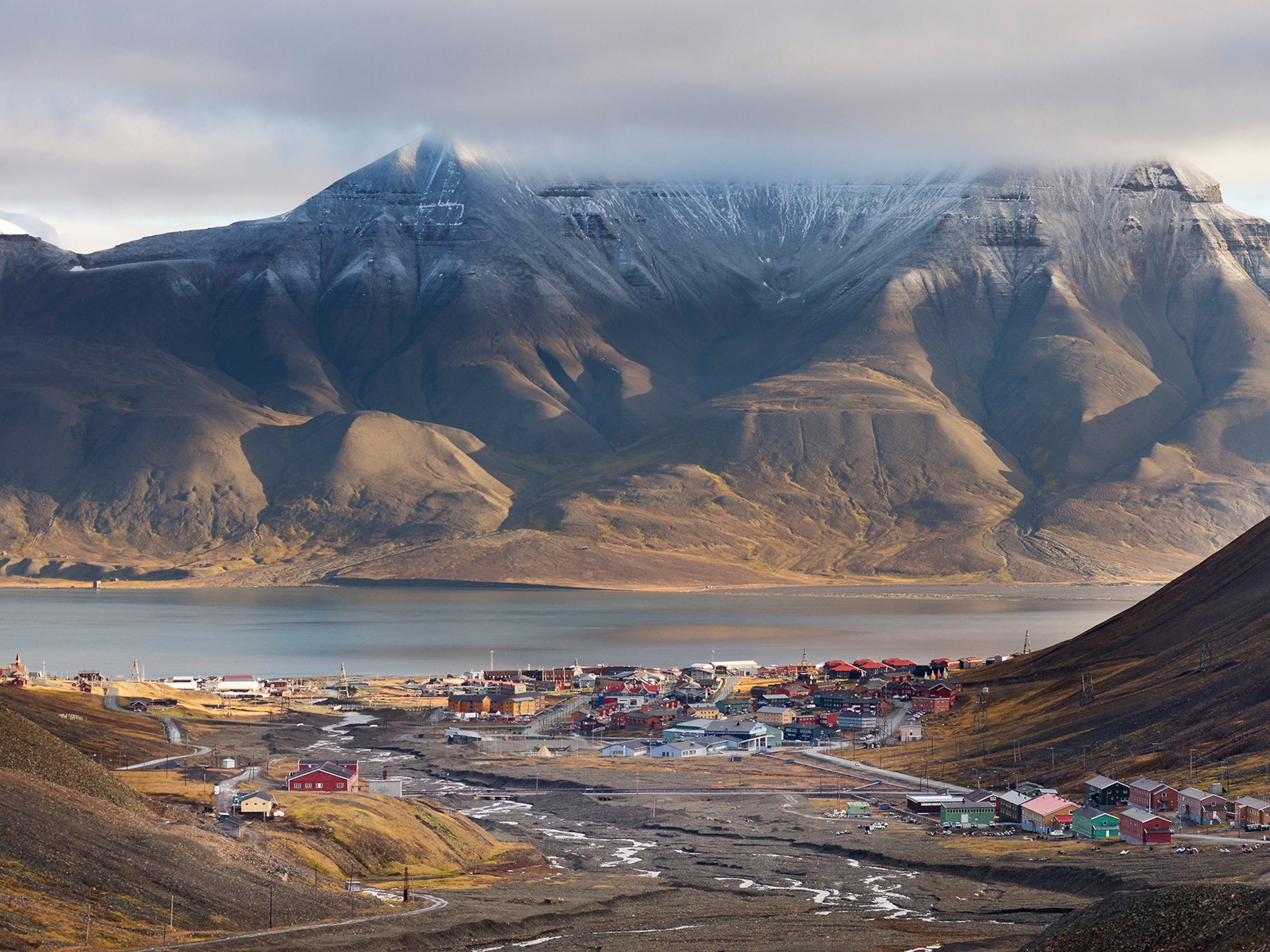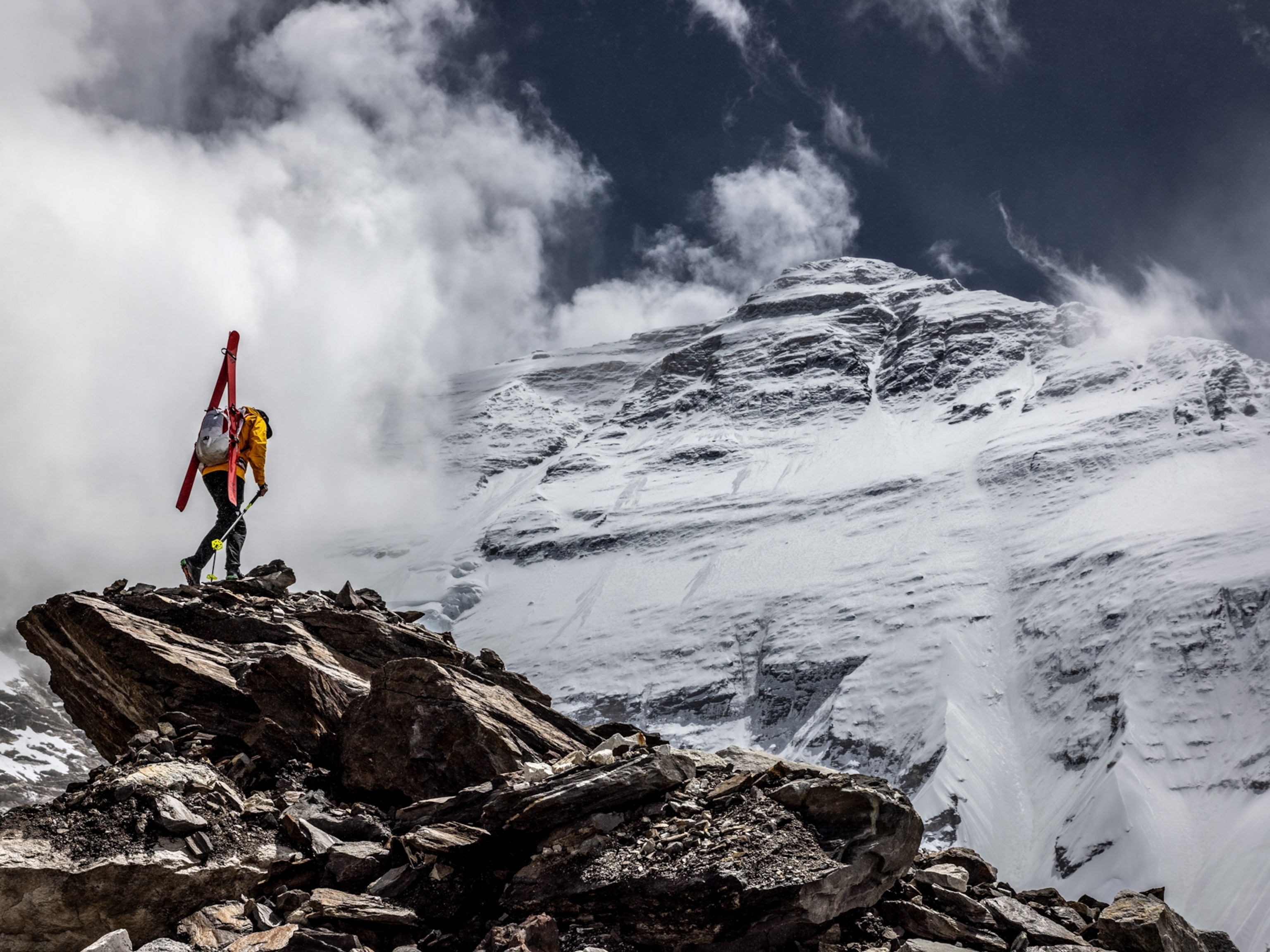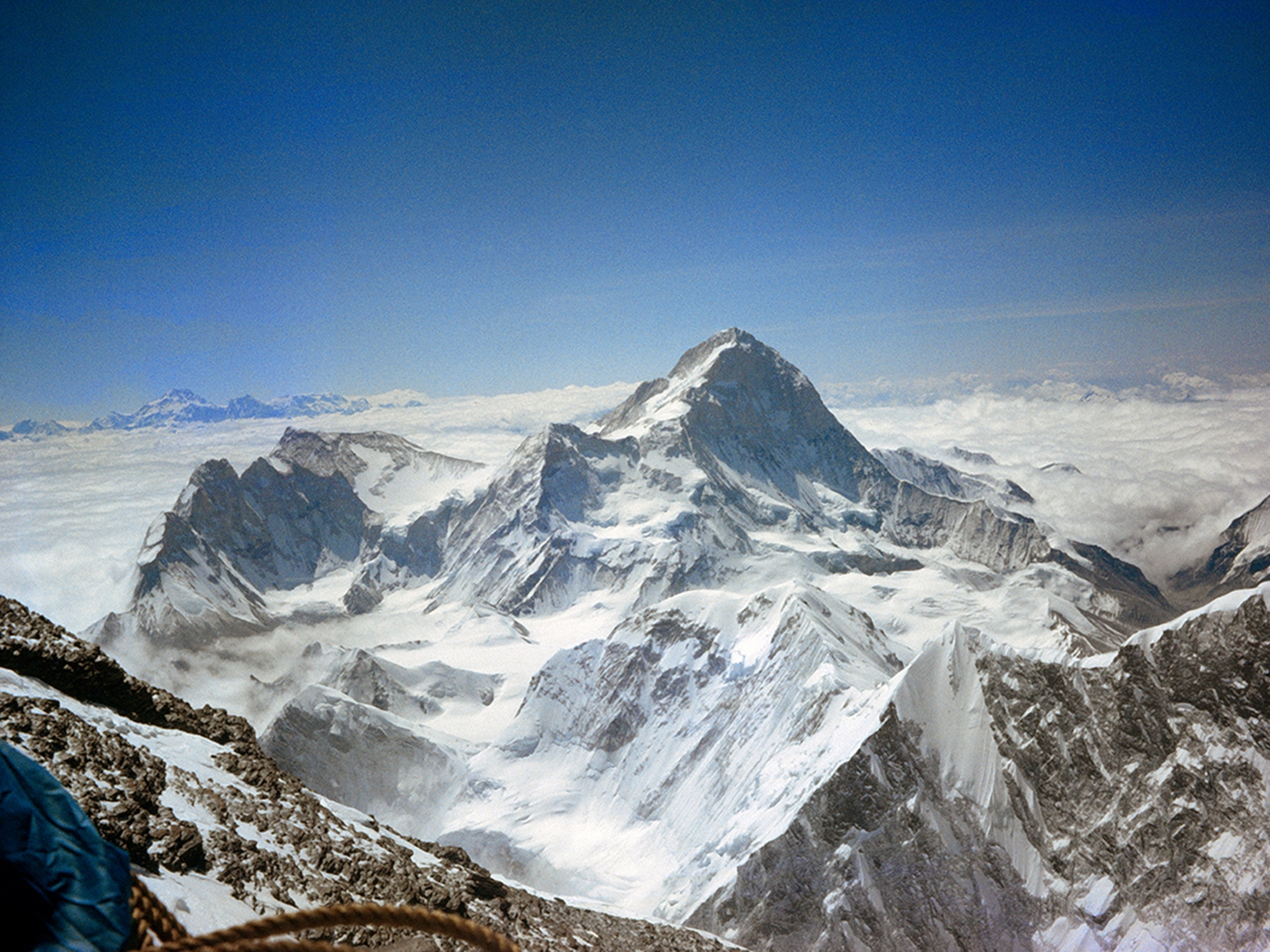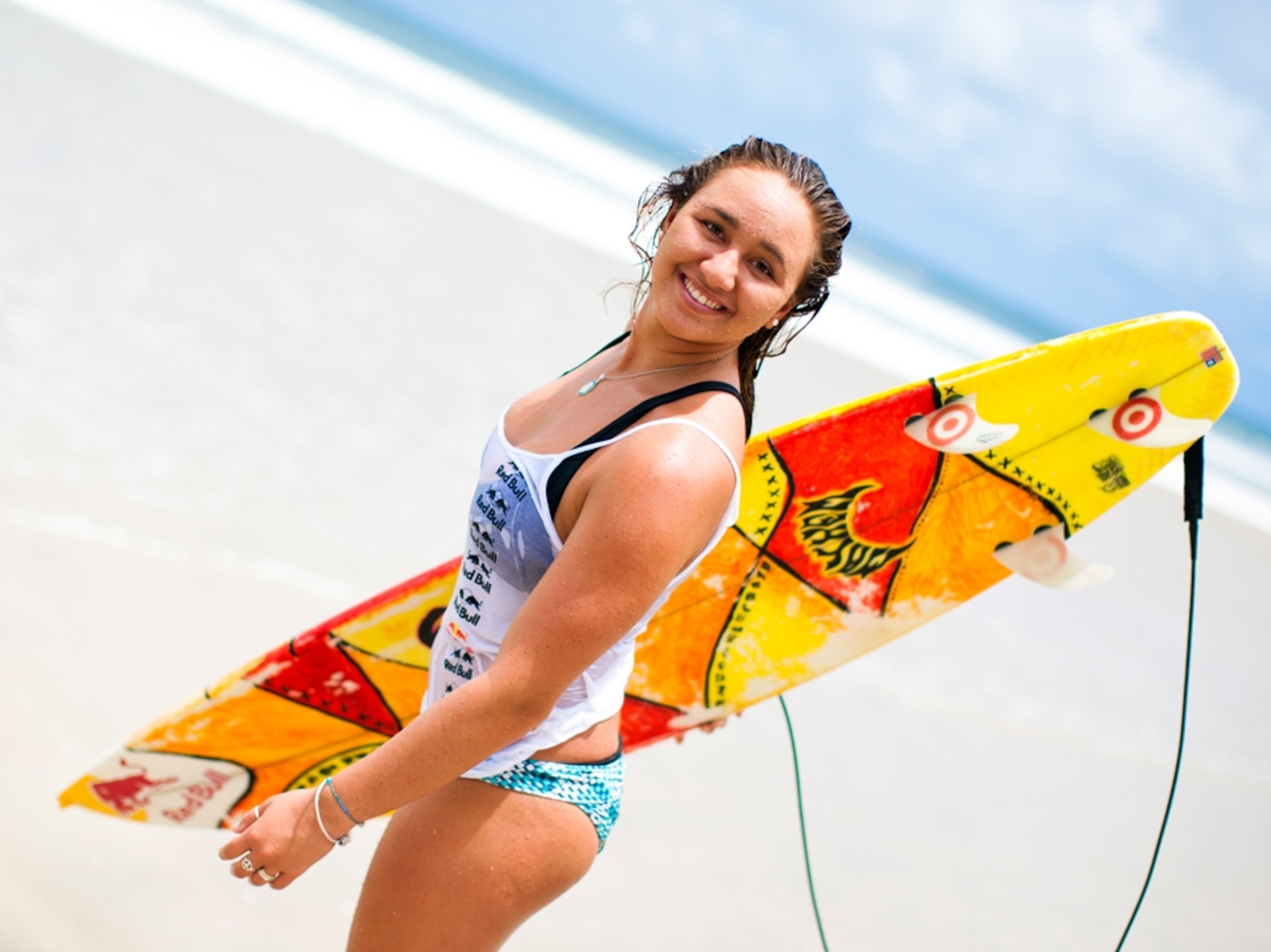
Surfer Carissa Moore
A surfer crashes through the glass ceiling in her sport—and she’s just 19.
See Photos
Surfing likes its legends. When the surf media started comparing a teenage girl from Hawaii with the sport’s reigning superstar and 11-time world champion, Kelly Slater, some of the passionate fans of the sport labeled it as hype. Carissa Moore made the first step toward proving the doubters wrong this year when she became the youngest person ever to win the world title. Her aggressive but fluid riding turned heads. Later his month Moore will be the first woman in the modern era to compete in the men’s Triple Crown of Surfing. Not bad for a 19-year-old.
In 2010, the then 18-year-old Hawaiian began making her case for greatness when she was accepted onto the Association of Surfing Professionals (ASP) Women’s World Tour. Moore won two events, earned a nod as Rookie of the Year, and graduated from high school. She was just getting her bearings on surfing’s center stage. By 2011, Moore crushed the female competition in surfing’s main events. During the ASP World Tour, she placed first in three events and never placed lower than third to win the overall title. In her two years on the tour, she’s already raked in $225,000 in purse money and attracted top-notch sponsors such as Red Bull, Target, and Nike.
Even though the women’s ASP World Tour ended early due to lack of sponsorship dollars, Moore’s season continued when she got wild card slots to surf alongside the world's best male surfers on the male tour at the Reef Hawaiian Pro at Haleiwa and the Van’s World Cup of Surfing at Sunset Beach, both on her home turf of Hawaii. The events are in November.
“I’m kind of nervous, but I’m also really excited,” says Moore. “I’m being realistic about what is going to happen. The guys I’m surfing against have a few more years and more experience on me, so I probably won’t make a heat, but if I do, great. That would be awesome.”
—Fitz Cahall
THE INTERVIEW
Adventure: This year you were awarded two wild card entries into the men’s events at Haleiwa and Sunset Beach in Hawaii. How do you feel about competing against the men?
Carissa Moore: This is the first year that the women's season ended early—in August. We only had seven events as part of our tour. Usually we end with the Triple Crown, which is a series of three events in Hawaii at the end of the year. But due to lack of sponsorship, the women don't even get to compete at the end of the year. It was weird for me; I won the world title, but I wasn’t even getting the chance to surf in front of a home crowd. They had a board meeting about the event and they brought up my name to receive the wild card. I ended up getting it.
I’m kind of nervous, but I’m also really excited. I’m being realistic about what is going to happen. The guys I’m surfing against have a few more years and more experience on me, so I probably won’t make a heat, but if I do, great. That would be awesome. Hopefully it will just bring attention to women's surfing and the women's circuit. Maybe it will help bring back our events for next year.
A: Obviously sponsorship differs greatly between the men’s and women’s tours. Do women have to push harder for attention?
CM: Women's surfing and men's surfing are different in so many ways, but are also beautiful in so many ways. The women are fluid and graceful and are becoming more innovative like the men, which is so exciting, especially this year. The progression has been so evident and I can't wait to see the gals continue to close the gap.
A: Is the gap closing more?
CM: I definitely think so. I think the generation that I grew up with, we're really excited about what we are doing. We keep pushing each other and watch each other surf and say, “I want to do that. That's so cool that you did that move.” I want to go bigger and higher. We'll look at the guys and get inspired. But I'm taking nothing away from all the women who have come before us, because without them we would not have the advantage that we have today.
A: When it comes to surfing, who are your role models?
CM: I definitely have always looked up to Kelly Slater and Andy Irons. They are my favorite surfers. But I also look up to Bethany Hamilton. She's one of my best friends and the way she lives her life and goes about things is really inspiring.
A: After your incredible performance and dominance in the women’s events, people began comparing you to Kelly Slater. That’s a big comparison.
CM: It's definitely very flattering. But at the same time, I feel like that's a lot to live up to, and I'm kind of carving my own path. I don't know how many world titles I'm going to win. I hope that every time I surf the world tour that I would give it a shot. If it works out, awesome, but if I just get to continue doing something I love and am passionate about, I'll be really happy. I hope I can maybe achieve half of what he's achieved.
- National Geographic Expeditions
A: You graduated from high school. Any plans for college or are you too busy surfing?
CM: I definitely would love to go back to school. My goal for later on is to be an elementary school teacher. I just love kids. But I've been a lot more busy than I thought I would be, so as soon as my schedule clears up—maybe when I am done surfing competitively—I'll go back to school.
A: Growing up, what did you dream of becoming?
CM: I wasn't too big of a dreamer except to maybe be the best surfer in the world. I definitely dreamed of that ever since I was little. I still sing a little, but that's nothing I would chase. It's just for in the shower and in the car.
A: Do the lessons learned from surfing and competition translate into everyday life?
CM: Surfing has taught me how to adapt. Things are ever changing in the ocean, which is much like life. You have to be able to change your plans on a moment's notice. Nothing is ever going to go your way, so you have to be able to take the losses with the wins and pick yourself up quickly. With competition, we had four events back-to-back this year. If you get on a negative roll, it's going to carry through your events. I got two second places—to the same girl—and I could have gone downhill from there. But I said, “No, you can do it. You can brush it off.” I was able to move forward from that.


